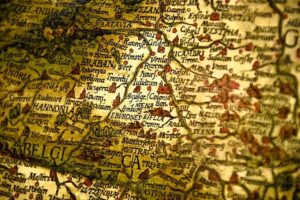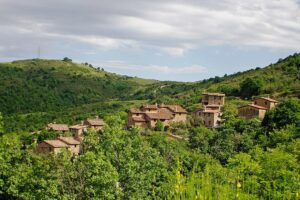Defenders of the European Union and its ideology of ‘political correctness’ often pretend that any opposition to their universalism is equivalent to an anachronistic return to nationalism, extremism, and war. Nevertheless, the number of those endeavouring to ally conservative patriotism to the idea of a common defence of Western identity against its numerous enemies — both from within as well as from without — is growing daily.
The nations of the Visegrád Group are at the forefront of this movement. It is thus no surprise that Poland has taken the lead and launched a new project to foster reflections on the Europe of tomorrow. As a result, a conservative association of intellectuals called the Stowarzyszenie Twórców dla Rzeczypospolitej (Association of Artists for the Polish Republic), presided over by Zdzisław Krasnodębski, MEP for the Law and Justice Party (PiS) and member of the European Conservatives and Reformists Group (ECR), invited historian David Engels to draft a Preamble for what they envisioned could be a constitution of a future ‘Confederation of European Nations.’ The text of the Preamble, inspired by the Hungarian Constitution and emphasizing the Greco-Roman and Judeo-Christian heritage of the West, reflects the idea of “Hesperialism” as developed in Engels’ recent book, Renovatio Europae.
If Europe intends to survive as a genuine civilisation in the 21st century, it will require a radical return to the values and traditions that shaped it. It will also need to ensure greater cooperation among European nations in various strategic areas — while simultaneously seeking a clear diminution of Brussels’ hegemony over other areas.
The Preamble that emerges from this initiative is both a political programme open to new ideas, as well as a potential rallying point for the various conservative political parties in Europe — still largely dispersed over diverse political families within the European Parliament — all of whom are keen on defending the West. The text has already prompted numerous reactions in the Polish media and in the international press. It is quoted here in its entirety.

We, the peoples of Europe, fully conscious of our historical responsibility, decide to establish a constitution and to bring the unification process of the continent to its conclusion. This constitution will create a confederation of nation-states that, while conserving their rights, agree to pursue a series of common objectives for the good of all, and for the care and protection of European civilisation including: a coordinated foreign policy, the protection of European borders, the fight against crime, the extension of a pan-European mobility infrastructure, the coordination of norms and rules, access to natural and strategic resources, cooperation in the domain of education and research, and the provision of the funds necessary to pursue these aims.
This unification should put an end to numerous centuries of intra-European warfare. It is implemented in a spirit of profound affinity between the European people who, despite their conflicts, have always viewed each other as parts of a single common culture which is more than the simple sum of its components, and which has brought forth a specific and unique vision of the world and of mankind.
This culture is shaped by various sources: most notably, the teachings of the Old Testament, Greek thought, Roman art of state-building, Christian revelation, and the heritage of the Romanic, Germanic, and Slavic people. It came to light in an institutionalised form after the formation of the spiritual sovereignty of the Church and of the political authority of the imperial dignity restored in 800. In the centuries that followed, European culture realised its internal potential during the course of the Middle Ages, the Renaissance, the Enlightenment, and Modernity. As a result, it also opened itself up to the world — a world into which it wishes to enter today, with renewed and strengthened connections, through the adoption of a constitution.
Proud of the great achievements of our past, our constitution is founded on positive adherence to our traditional values, conscious that the prosperity and progress of the present would not have been possible without the achievements of our ancestors. This is why we wish to firmly anchor the evolution of the future in the past and to protect, conserve, and promote the cultural, social, and moral heritage — be it material or immaterial — which has been bequeathed to us.
We, the peoples of Europe, pledge before God and in accordance with our own conscience:
